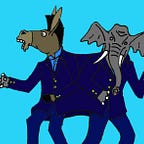Slow Your City, Enrich Your Life
Mark Cramer (author of Old Man on a Green Bike and Urban Everesting)
Two days after I moved to California, I saw an easy way to cross the street, thus avoiding two blocks of back-and-forth walking. No cars to my left, no cars right, I crossed. A policeman got out of his squad car, motioned me to approach and then informed me I had just “jaywalked.”
I had moved to LA from one of those rare places where the street is for gathering, walking, cycling and even playing, with motorists who enter the roadway knowing they must slow down. The cop didn’t care about this argument. Either I could sign to pay a fine or take it to court. I decided to pay.
If Paul Tranter’s and Rodney Tolley’s Slow Cities: Conquering Our Speed Addiction for Health and Sustainability had existed at the time, I would’ve decided to take it to court, and I would’ve won.
I would’ve lectured the judge that my case was an example of the “slow paradox” (Tranter, Tolley chapter 4) of how speed steals our time, as did the speed for automobiles on the street I crossed illegally.
The authors have extraordinary multidisciplinary credentials that help us experience the history, geography, culture, ecology, philosophy and designing of the great humane places that cities around the world can become, are becoming or mainly still renege against becoming.
Their concept of “effective speed,” how a commuter can actually save time by ditching the car and taking the bike, is touted as “counter-intuitive.” But in fact, it’s precisely the system that car-dominated cities have in place that goes against the grain of common sense, health and the environment.
With a wealth of sources, revealing graphs and stunning photos, Slow Cities should be a fast course for city urban-planning practitioners and grad students in urban transportation and planning.
But it’s also a great tool for people like me to take before a judge to defend the rights of pedestrians, cyclists, users of public transportation, children, seniors and citizens around the world.
The book is expensive, but two entire lives went into the vast research and skilled writing. If the organizations you belong to have anything to do with the environment, a more humane way of life, city planning or enfranchising nonmotorized transport, then such organizations can afford to get this book, share it with members and use it to create better and healthier places.
Finally, this book proves that what is necessary to save the environment does not in any way contradict what is healthy and fun for our own personal lives.
Postscript: Are you a “jay”?
From Slow Cities: “ ‘Jay’ was a term of derision and condescension, referring to a rural ‘hick,’ regarded by city dwellers as stupid or naïve. Such persons were unaccustomed to the pace of a city.” Thanks to massive “motordom” PR campaigns, by 1924 there began a public shift into blaming jaywalkers for crashes instead of blaming drivers.
